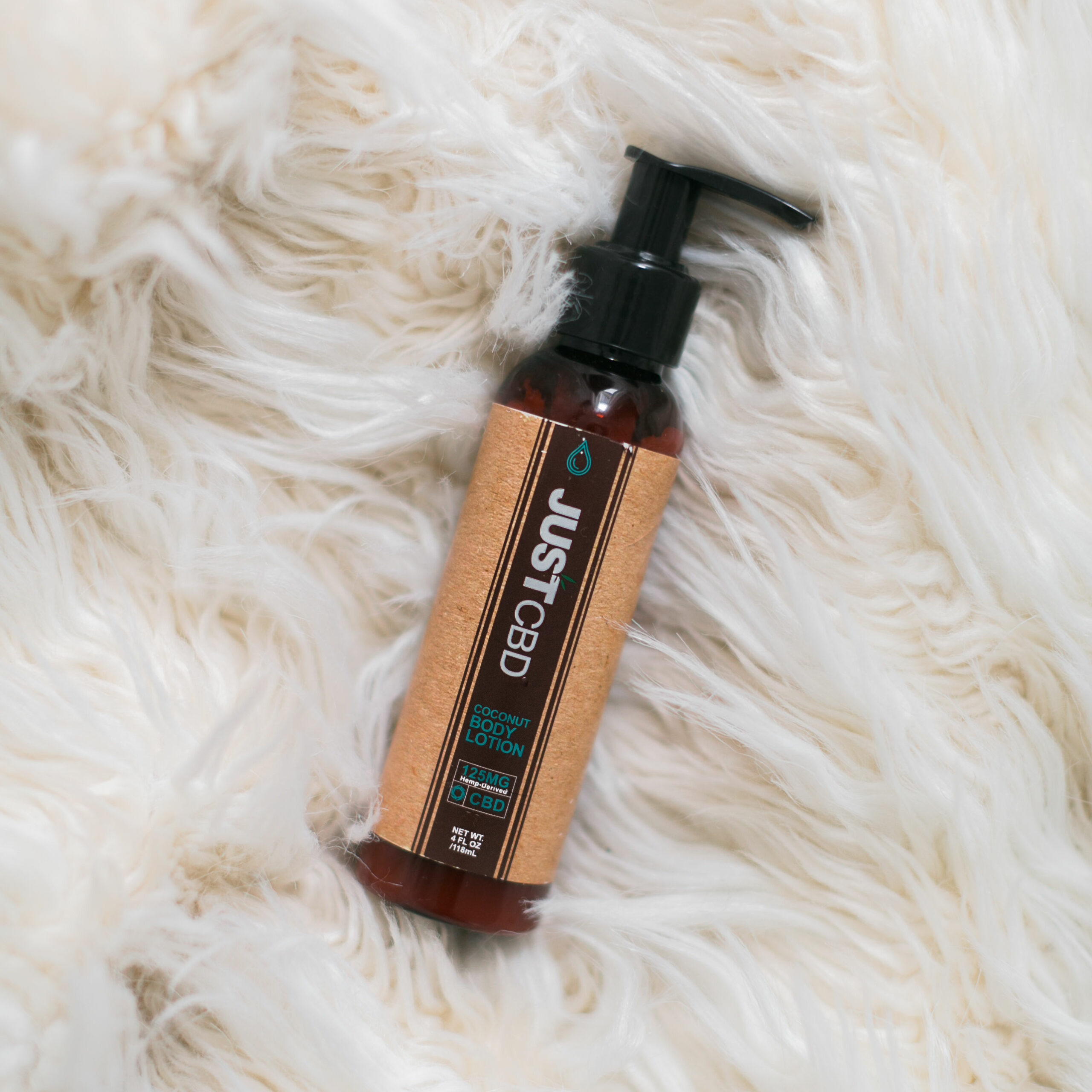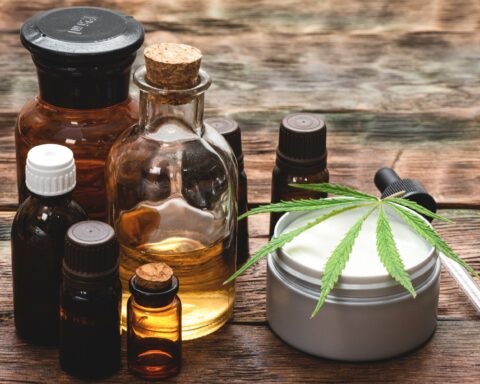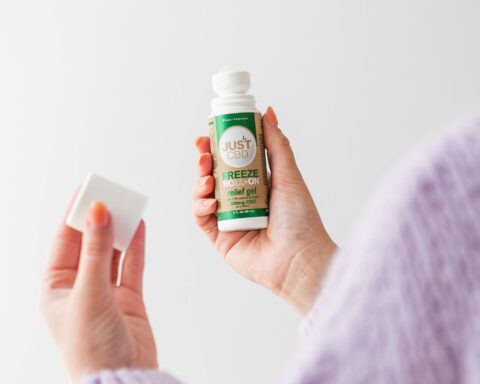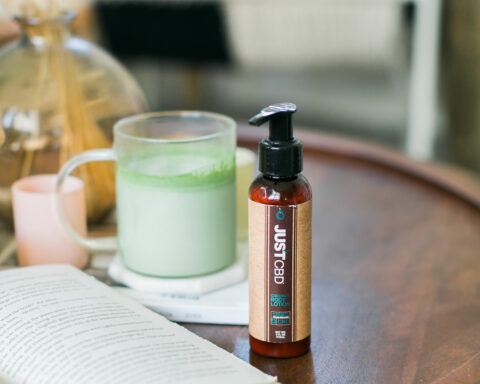CBD is one of the few ingredients that has taken the skincare industry by storm. Research and market surveys show that CBD is now an active ingredient in sunscreens, bath bombs, lip balms, creams, moisturizers, and other products.
According to Harvard Health Publishing, cannabidiol (CBD) is an active component in the cannabis plant. CBD can be extracted from medical marijuana or hemp. Although marijuana contains CBD, CBD does not have psychoactive properties. (THC, or tetrahydrocannabinol, is the chemical responsible for the high.) All of this is to say that CBD will not have any mind-altering effects.
What Is The Indication For CBD?
Here’s an overview of what a few recent scientific studies have discovered about CBD’s healthcare effectiveness, including some illnesses that the FDA has approved CBD products for.
Pain
According to research published in Current Neuropharmacology, when CBD enters a class of receptors that receive impulses, called vanilloid receptors, the contact reduces inflammation levels and pain perception. Additionally, a study published in the European Journal of Pain in July 2016 discovered that CBD could assist persons with arthritis control pain. The rat study investigated whether applying a CBD gel transdermally (on the skin) would relieve pain and inflammation. Researchers determined that the topical medication offered pain-related behavior alleviation with no proof of adverse effects.
Cancer-Related Symptoms
Symptoms associated with cancer therapy The focus on CBD for cancer treatment has been on its benefit in lowering nausea, a common side effect of chemotherapy and radiation treatments. The FDA approved two marijuana medications to combat those negative effects: Marinol (dronabinol) and Cesamet (nabilone). According to the American Cancer Society, CBD may decrease the growth of cancer cells.
Depression And Anxiety
a lot of research has been carried out to investigate how cannabidiol could be utilized to manage a variety of neuropsychiatric illnesses. One of the most recent studies, published in Neurotherapeutics in October 2015, stated CBD topical (such as CBD salves balms) offers “great potential as a therapy for numerous anxiety disorders.” Furthermore, according to a study published in the American Society journal for Experimental NeuroTherapeutics, “preclinical research suggests CBD as a treatment for anxiety disorders,” including PTSD, anxiety, obsessive-compulsive disorders, disorder, and seasonal affective disorder.
Acne, pimples, and other skin problems
A study published in the Journal of Clinical Investigation in July 2014 revealed that topical CBD could be a powerful anti-acne agent, most likely due to its anti-inflammatory characteristics. In addition, a study published in the Journal of the American Academy of Dermatology in July 2017 discovered CBD (and THC) to be effective for itch relief.
Epilepsy
Anecdotal accounts of CBD’s usage as a potential for epilepsy treatment have circulated for decades, and a small number of thorough scientific investigations appear to back up these assertions. One study, published in the New England Journal of Medicine in May 2018, found that CBD helped reduce the number of seizures in people with Lennox–Gastaut syndrome, a type of epilepsy (LGS). In addition, the FDA approved CBD formulation for LGS, another kind of epilepsy known as Dravet syndrome (2018).
Why is it beneficial to your skin?
“Cannabidiol provides substantial antioxidant and anti-inflammatory advantages that can effectively address skin conditions like inflammation, drying, and free radical damage,” says Ildi Pekar, an aesthetician in New York City and the inventor of her namesake beauty product line. CBD may also be useful in treating acne since it reduces sebum production in the skin. Furthermore, research suggests that cannabidiol may be useful in treating eczema and psoriasis.
How to Apply CBD to Your Skin
As the name suggests, CBD skincare products are applied to the skin. However, the applicability is dependent on the exact product. If you’re using a serum, spray, cleanser, mask, or moisturizer, apply it in the same order as routine skincare. You should be fine if you follow the guidelines on the package. Are you wondering if It might go too far with the CBD on your skincare products – is it a problem if your cleanser, essence, serum, and moisturizer all include CBD? While You don’t have any issues, less is more. Too much of anything on the skin might be annoying. The trick is to begin slowly and gradually.”
What To Consider When Shopping For CBD Skincare Products
True CBD should be identified on the label. “If the only component listed is ‘hemp seed oil,’ this is not CBD. Because there is a lot of greenwashing in the skincare sector and no regulation, it is up to you to guarantee you are receiving value for money. The hemp seed oil has excellent hydrating effects but does not contain CBD.
Frey explains that most reputable CBD skincare brands will provide lab findings for their CBD extract to guarantee you know what you’re applying to the skin,” Frey explains. “You want to know that the hemp plants extracted the CBD were grown without pesticides or other dangerous chemicals. would be counterproductive to the goal of
Check the instructions and adhere to them. “Like other topical [treatments], the product must be on the skin for a time in order for the skin to absorb the product and its therapeutic capabilities,” explains Frey. “I recommend looking for a CBD-infused treatment, such as a serum, oil, or mask, that has enough time to enter the epidermis’ resistant outer layers and effect cellular changes.”
Conclusion
CBD may be found in various products, including chocolate, cocktails, candles, and clothes. The trendy element is sweeping the world of beauty and skincare. From creams and sunscreen to bath bombs, lotions, and shampoos, hemp-infused products are becoming increasingly popular at retail beauty stores worldwide. Some trial and error may be necessary.
References
McPartland, J. M., & Russo, E. B. (2001). Cannabis and cannabis extract: greater than the sum of their parts?. Journal of Cannabis Therapeutics, 1(3-4), 103-132.
Costa, B., Trovato, A. E., Comelli, F., Giagnoni, G., & Colleoni, M. (2007). The non-psychoactive cannabis constituent cannabidiol is an orally effective therapeutic agent in chronic rat inflammatory and neuropathic pain. European journal of pharmacology, 556(1-3), 75-83.









